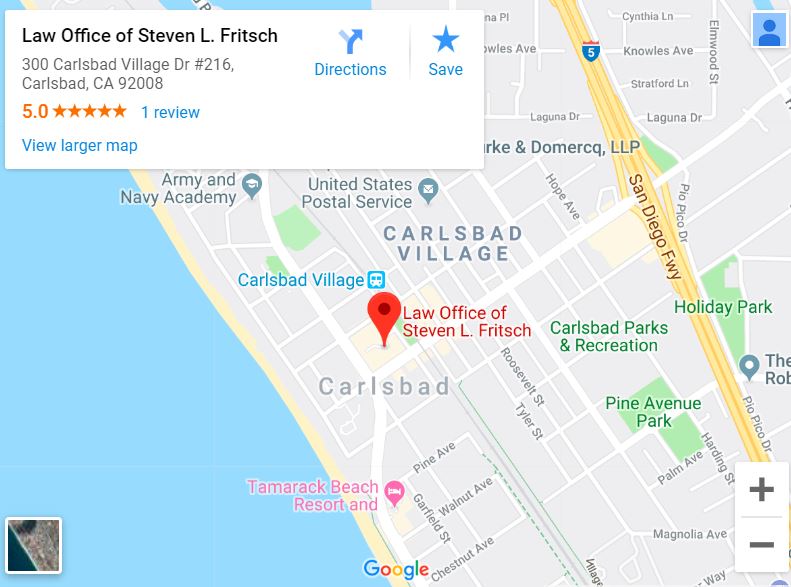Main Takeaways:
- There are two basic forms of divorce: contested and uncontested. In a contested divorce, both parties are not able to agree on all (or any) terms. In an uncontested divorce, both parties agree on all terms and don’t require a court to intervene.
- Filing an uncontested divorce with children can result in issues with how the family home, cars, and other assets are divided.
- Custody, living arrangements, visitation, and support are also common issues when planning an uncontested divorce with children.
Uncontested vs. Contested Divorce
When you and your spouse decide to divorce, there are two basic options – contested and uncontested. In a contested divorce, you are not able to agree on all terms; in some cases, the parties can’t agree to divorce at all, and in others, the specific terms of the divorce are not able to be agreed upon. In an uncontested divorce, the couple agrees on all terms, both want to divorce and don’t require the court to intervene when it comes to division of assets, child custody or child support. If the parties both agree, an uncontested divorce is generally faster, less stressful and less expensive than a contested one.
What Happens When You File for Divorce with Children?
Once one spouse files for an uncontested divorce the case can evolve in several ways:
- The spouses agree: When both partners agree on all issues, including how assets and debts should be divided, if there will be alimony and on custody of the children and child support. In this case, the spouses agree on all counts and show up with a settlement agreement ready to go. As long as the court agrees, the divorce is approved.
- Once spouse fails to respond: An uncontested divorce can also occur when one spouse does not respond to the initial petition. They could fail to respond for a variety of reasons and may not even be able to be located to receive the filing documentation.
The best feature of an uncontested divorce is the likelihood that both parties will be happy with the settlement and swiftly complete the process. Even if you both agree on all terms, though, you still need to see an attorney and have your divorce finalize. It will not be legally binding or enforceable unless it is approved by the court, even if you have reached an agreement you are both satisfied with.
Uncontested Divorce with Children
If you have one or more kids, you can still file for an uncontested divorce, but the process is only slightly more complex. Children add additional issues to the divorce in terms of responsibility, custody and support. Having minor children may also impact the way the family home, cars and other assets are divided and how much income both parties have after the divorce. Since children do make a divorce more complex, there are more opportunities to disagree or for the partners to be too far apart on key issues to reach an agreement. An attorney can help guide you through the process and provide objective insight into solutions that would be best for the children and acceptable to both parties.
Potential Issues Surrounding Minor Children and Divorce
Children make the divorce process more complex for a variety of reasons
- Custody: Which parent will have physical custody of the kids?
- Living arrangements: Where will the children live?
- Visitation: How frequently will the non-custodial parent be able to see the children?
- Support: How much money will the non-custodial parent pay to the primary caregiver?
Advantages of Uncontested Divorce
Speed and cost are the most obvious advantages of an uncontested divorce. Since both parties agree, the process can proceed more quickly, and you’ll both require fewer services from an attorney. Cost is not the only consideration; the speedy resolution allows both parents to make a fresh start and lessens the stress the divorce proceedings place on the kids as well.
An Attorney Can Help
Even when you both agree on terms, an attorney can help you finalize your divorce and has the expertise to review your agreement and point out any areas you may have overlooked. By speaking with an attorney, you can be sure that your uncontested divorce is legal and valid and that your rights and your children’s rights are protected. Your attorney can also review your case to make sure that the agreement you’ve reached is truly in your best interest and that it will result in the best possible outcome for your kids.
If you are considering getting divorced and are worried about the process, or if you and your spouse have reached an agreement and need help getting it finalized, we can help. Our family law attorneys understand the ramifications and issues involved with even an uncontested divorce when kids are involved and can walk you through the process. Contact us to learn how easy it is to get started and to get the peace of mind that comes with knowing your uncontested divorce is legal and final.
